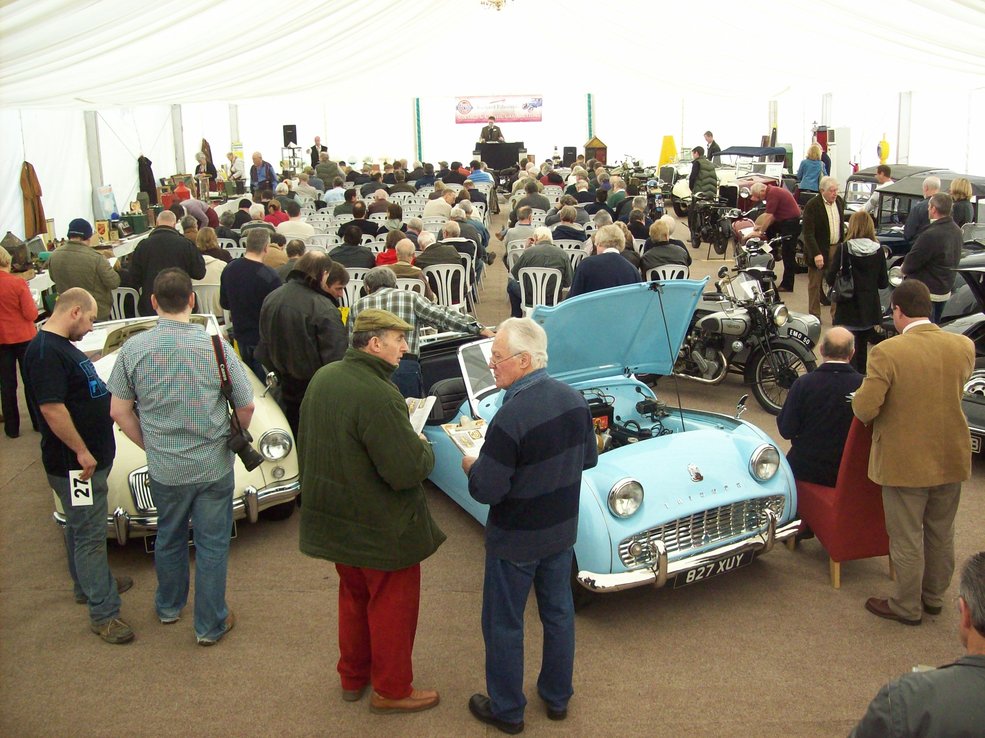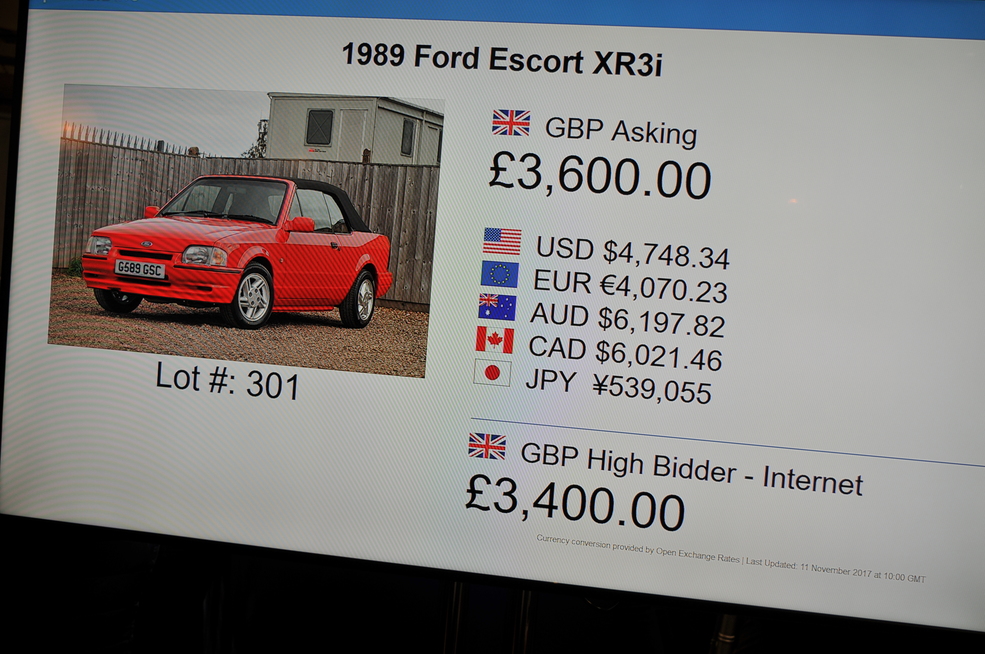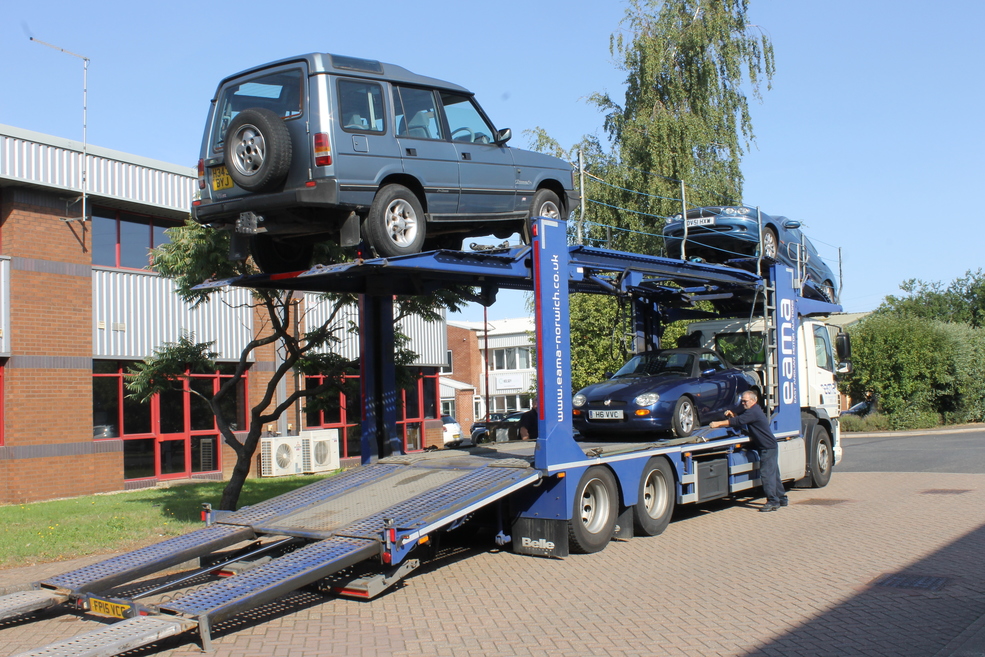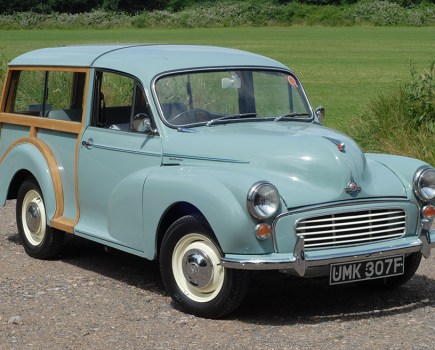Don’t fancy dealing with the public and dicing with non-payers and time wasters online? Selling at auction could be the answer. Here’s what you need to know.
To the uninitiated, selling your car at auction can often appear to be a difficult process. Sellers want their cars to sell for a certain amount; the common misconception with selling at auction is that your car will sell regardless of what amount you’d like for it. In truth, this is complete nonsense and you still have full control over the amount you’ll receive for the vehicle.
The whole process begins at home. You’ve decided to sell your vehicle; you’ve looked online, seen similar cars and decided your car is worth X amount.
An auction sale doesn’t have to be a last resort at attempting to get the amount you want for the vehicle and just because you have a figure in your head that you feel will be met through a private sale doesn’t mean you should avoid an auction. Arguably you’re presenting your car to an audience that is geared towards buying said type of classic vehicle.
All auction houses accept a huge array of vehicles to be sold at their auctions so the best thing to do here is contact a chosen house and express your intention to sell the car. All houses will be keen to help assist you with the sale, so don’t be afraid to ask questions.

Normally you’d be expected to take the car to the auction house who will then provide a valuation; this will come in the form of estimates and guide prices. Don’t be put off if the vehicle is valued at slightly below what you had in mind, you still have full control, but we’ll come to that soon.
Once you’ve decided to sell the car at auction you’ll need to register as a seller. This is a quick and simple process and requires you to simply fill out a registration form that details your name, address, vehicle and other details about the car. By filling in this form you’re agreeing that the car is in the condition you state it is in as the vehicle is then sold as seen.
The auction house will run an HPI check on all vehicles to make sure that no cars are stolen or hiding accident damage, so be honest when detailing information about your car.
Once you’ve registered, the auction house will take pictures of the vehicle and list the car for auction within its catalogue both online and in paper form for the day of the sale.
Here’s where selling your car through an auction house makes sense because all of the effort you would normally spend by taking pictures, listing the car for sale on a number of websites and dealing with the calls, emails and various other messages from potential buyers is avoided.

The whole process is controlled by the auction house, making it a hassle-free process. The other added benefit is removing the ‘tyre kickers’ from the scenario; those people who just want to take the car for a drive without having the slightest inclination of wanting to buy. It also has the added benefit of the buyer not knowing where your vehicle is stored – whether that be your home or a separate unit – therefore adding security over your sale.
As mentioned before, if you have a value in mind you’re more than welcome to set a reserve and thus not allow the car to sell for a minimal amount. For example, if the car is valued at between £1500 and £2000 but you believe the car to be worth more than £1500 to you, you can always set a reserve of £2000.
From here, if the reserve isn’t met, the car isn’t sold; the auction house will then contact you with the highest bid made. If the highest bid was £1900, you may be inclined to accept the bid with it being just shy of the amount, or you could refuse the bid and retrieve your car from the auction venue.
This way you have full control over how and when the vehicle is sold. However, if the car is auctioned without a reserve and bids are made, the car will be sold for however much the highest bid is, so be aware of this.
Overall the whole process is a simple one, the biggest point here is to simply speak to the auction house and ask questions. The common misconception of simply placing your car for auction with no control of the price is a myth; instead you have absolute control and can set a reserve at your wish.
Selling your car at auction is a great idea and removes the hassle of doing it yourself; just make sure you understand what is involved before going ahead with it.

Collection
If the car is a non-runner, you can arrange collection for the vehicle from your location; this usually comes at a nominal charge which varies across different auction houses depending on the distance needed to travel. Under £100 should see the vehicle collected and delivered to the auction house location. It’s worth calling other companies that deliver vehicles depending on how far you are from the auction house; you may be able to get it cheaper for longer distances.
Top tips for selling at auction
We spoke with Tristram Belemore-Smith of East Anglian Motor Auctions to find out what you should do before buying at auction.
- Don’t over prepare the car for valuation. An honest vehicle speaks the truth about its life; one that’s been polished to within an inch of its life may be hiding troubles. It may also accentuate issues that you thought were hidden.
- Set a reserve. If you feel the car owes you a certain about of money then set a reserve to make sure that the car isn’t sold for too little.
- Be honest with the information about the car. The more people know about the vehicle the more likely someone will be to part with their money for it.
- Make sure that you have all available keys, any previous service and MoT certificates as well as receipts and invoices for parts and previous work done.
- All of the hard work is taken care of by the auction house, this including the physical handing over of the car as well as securing the money. Therefore, familiarise yourself with the process so you understand what goes on. Don’t be afraid to ask questions.






